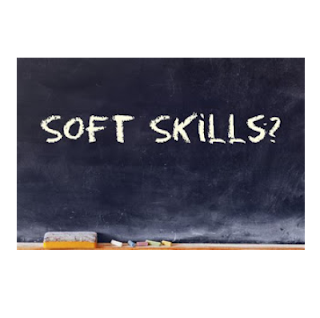Are "Soft" Skills really Skills?
Steven Simon, Ph.D.
In my writings, including in my books, I don't differentiate between soft and hard skills. There's a reason. In my opinion, soft skills, or what some describe as people, interpersonal, or even self-management skills can easily miss the mark in defining true and practically meaningful skills for employers. Anyone can include communication, resilience, persistence, listening, or flexibility in a resume. Everyone has those "skills" to some degree and it's very common to see them mentioned by job seekers. After all, as many of the popular articles, blogs, and speakers say, soft skills are what many employers want, right?
Hard skills represent developed proficiency and knowledge that can be more concretely, specifically and measurably described than so-called soft skills. In fact, many skills described as soft are actually not skills at all, but rather personality traits, aptitudes or talents. In my opinion, personality traits such resilience, persistence, flexibility, self-control, positive attitude, and sense of humor can be quite important, but belong to a different category of characteristics than skills. Some, such as an aptitude for working with numbers or artistic talent may contribute to skills development, but they are not skills in themselves. Personality traits are very subjective. What one thinks about how positive an attitude they have, or their level of persistence may not be shared by others. Thus, even if they were skills, it would be hard to make the case that such traits represent developed proficiencies or knowledge needed to do a specific job.
If soft skills can be defined in terms of underlying hard skills, then they can become more meaningful. For example, rather than saying "strong communication skills", what are my underlying hard skills in communicating related to the job for which I am applying? One might be "resolving customer complaints." Another might be "negotiating contracts." Both of these skills tell an employer, not only that I have good communication skills, but how I effectively use them in relevant job-related tasks. They represent the results of "soft" skills. For the trait of positive attitude, underlying hard skills might be "closing sales with recalcitrant clients", and "leading successful work teams." These are not personality traits, but a positive attitude is inherent in how easily and quickly I learned to be proficient in these crucial job skills.
When we look at skills in this manner, we become clearer in what we mean and more credible in what we put in our resumes and speak about in interviews. The distinction between soft and hard skills becomes less important because the emphasis is on what specific proficiencies and special knowledge we have that's most relevant and clear to employers who are hiring someone for a job. If you want to include your more general soft skills with a resume, include them in a branding statement or in a cover letter. However, back them up with underlying hard skills in a "Skills" section of your resume and when you are in interviews.

Comments
Post a Comment